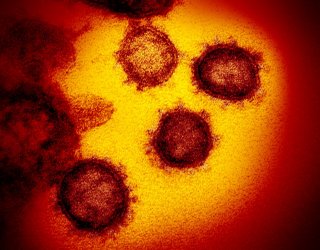Question: Could Sewage Systems Help Track the Coronavirus?
A revolutionary idea.
In hoping to add another weapon to keep close track of future coronavirus outbreaks, scientists are eyeing a new strategy that involves monitoring sewage systems.
Researchers from MIT’s wastewater analytics spinout Biobot, Harvard University, and Brigham and Women’s Hospital in Boston have started a venture that will look for SARS-CoV-2, the virus that causes COVID-19, in fecal matter in sewage systems.
“We are establishing protocols to test sewage for SARS-CoV-2. If successful, this data will give communities a dynamic map of the virus as it spreads to new places,” Biobot says on its website.
The site adds: “We analyze viruses, bacteria and chemical metabolites that are excreted in urine and stool and collected in sewers. This information is a readout of our health and wellbeing as a community. We map this data, empowering communities to tackle public health proactively.”
Other countries like China and France have already jumped on board in utilizing this newfound method to gain keen insights into where the next potential outbreak could occur.
Last month, researchers from China discovered that SARS-CoV-2 could be found alive in fecal matter, meaning it is indeed possible to transmit the contagion through sewage systems. The team published its findings in the Journal of the American Medical Association.
In Paris, researchers were able to sample sewage across major parts of the city, and they detected a rise and fall in novel coronavirus concentrations that corresponded to outbreaks in the region.
Researchers said this particular study was the first to prove that this technique could, in fact, detect a sharp rise in COVID-19-positive concentrations in sewage before confirmed cases exploded in clinics. The team posted the study on medRxiv.
The diverse team from Biobot, Harvard and Brigham and Women’s Hospital is made up of biologists, epidemiologists, data scientists, urban planners and engineers.
Armed with such knowledge in different fields, the data garnered from the sewage systems will be used to assist with measuring the scope of the outbreak and impact on hospital capacity, providing decision support for officials, tracking the effectiveness of outbreak-curbing measures and providing early warning for the reemergence of the virus.
Although all of the work is done pro bono, Biobot is asking interested communities to cover the costs of the sampling kit, along with shipping, which comes to about $120.
Ethen Kim Lieser is a Science and Tech Editor who has held posts at Google, The Korea Herald, Lincoln Journal Star, AsianWeek and Arirang TV. He currently resides in Minneapolis.
Image: Reuters

